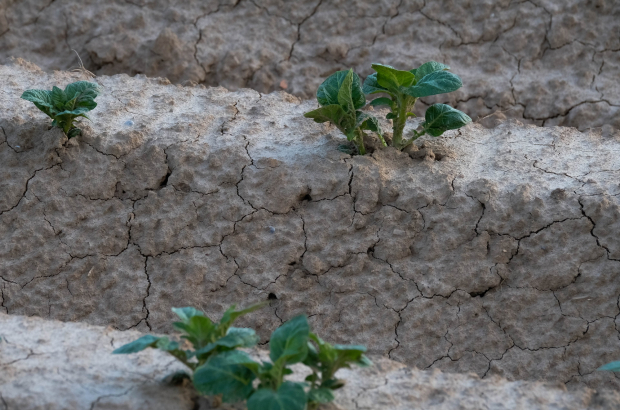- Daily & Weekly newsletters
- Buy & download The Bulletin
- Comment on our articles
Flanders faces another drought this summer
As if the coronavirus was not bad enough, Flanders is facing a drought this summer. The Flemish Drought Committee is expected to issue an orange alert, advising provincial governors to control wasteful use of water and ban the extraction of water from streams and small rivers.
Dry summers are increasingly common in Flanders, with the summer of 2018 severe enough to be formally declared a farming disaster for the region. Even so, extraction bans are not usually required until June or July, suggesting that 2020 is shaping up to be particularly difficult year.
“We are seeing very low groundwater levels even earlier than in recent years,” said Patrick Meire, professor of water management at Antwerp University, in Het Laaste Nieuws. “If that trend continues, we may be in trouble this summer.”
The Flemish Drought Committee is activated whenever water shortages seem imminent. Its job is to monitor the situation and advise provincial governments how to respond. Antwerp province has already banned extraction from 10 small watercourses deemed to be vulnerable.
Limburg has developed a “water balance sheet” for the introduction of water protection measures. This takes information about all the water sources in the province and combines it with past consumption data and projections of future demand. The result should be a more targeted response to emerging shortages.
“We see the risk of water scarcity as quite high again this year,” said Bert Lambrechts, deputy responsible for water and climate in the provincial government. “Drought risk management is therefore more important than ever.”
Flemish business network Voka has called on the government to ensure that industry can get the water it needs once restrictions are introduced this summer. Coming on top of the corona crisis, a water shortage could prove fatal for some companies, it warned.
“Many food, health and energy companies were allowed to keep running during the lockdown because they were seen as essential,” said Voka managing director Hans Maertens. “It’s only reasonable to follow that line of reasoning in the event of a water shortage.”
Photo ©Nicolas Maeterlinck/BELGA


















